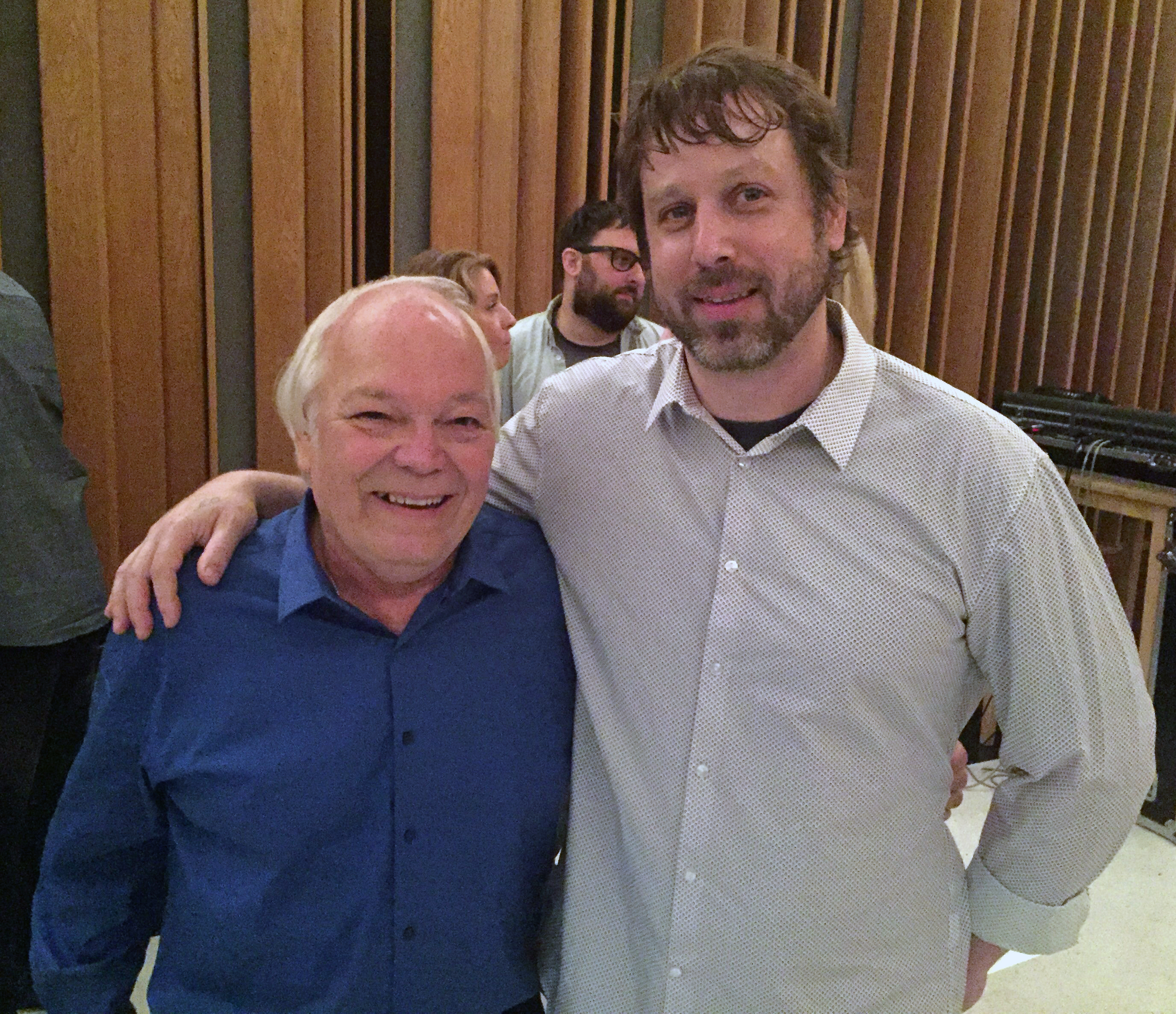You don’t hear much about retirement parties these days, and it’s rare for someone to spend a full career with a single company, but after 35 years at Capitol Mastering, veteran mastering engineer Ron McMaster has hung up his lacquers. As a testament to his talent and the respect he has garnered, the appropriately named and much-loved disc cutter was given a warm sendoff at the studio earlier in the summer, attended by colleagues including engineers Al Schmitt, Geoff Emerick and Niko Bolas, as well as fellow mastering engineers Gavin Lurssen, Kevin Reeves and Peter Doell, and former studio boss Michael Frondelli.
Lurssen, who noted that McMaster had cut his final set of lacquers that very day—a vinyl reissue of Jackson Browne’s Running on Empty—told of how he had come to rely on the engineer after founding his own mastering studio and needing discs cut for vinyl customers.

“Fifteen years ago we decided we needed to work out a system,” Lurssen recalled. “There are two parts to the process. First, we give Ron the highest possible resolution of a file. The other part is the professional-grade digital-to-analog conversion process. Ron just has ‘secret sauce’ of unique analog equipment, which he knows how to use to give records a kind of depth of field, where the sound is not overcooked in level.”
McMaster, who began cutting vinyl in 1979, said, “I’ve been working in a room where I’ve got some great Neve EQs and SoundTech EQs and a great limiter/compressor that was built and designed here. And that’s really all I need.”
Schmitt pointed out one other important piece of equipment: “It’s in his ears—it’s in the way he hears. Nobody cuts vinyl better.”
Reeves, a protégé of both McMaster and his late colleague, Wally Traugott, told Mix that upon his arrival at Capitol in 1986, “I already knew who Ron was from reading the backs of records I loved. I was blessed to come up through the ‘Capitol farm club’ and be trained in this fine art by Ron and Wally.”
Related: When Musician Becomes Master: 40 Years Later, Capitol Engineer Cuts His Own Tracks to Vinyl, Dec. 1, 2013
Among the most important early lessons Reeves learned from his mentors was to take himself out of the picture and let the music do the talking. “When I came in, I was headstrong and thought I knew all about this stuff, and would immediately start turning knobs. Ron and Wally would say, ‘No, take your hands off the controls and listen for a second. This isn’t about you; this is about the music. Let’s talk about how to make the music great—or even if you need to touch it at all.’ That was a hard lesson for me to learn as a young engineer.”
All who spoke noted a common element: McMaster’s humble, gentlemanly manner. “I’ve never seen him rattled,” said Schmitt. “I don’t think he ever gets mad. He’s such an easy guy to be around. I would recommend clients to him, and he would patiently explain everything he was doing.”

Adds Reeves, “I would watch him—he has a personal relationship with every client. You could see how they trust him.”
Filling his shoes at the studio will be Kevin Bartley, who will cut in McMaster’s former room, and Ian Selchik, who began as a tech 10 years ago, eventually learning to cut five years ago, after resuscitating Traugott’s Neumann VMS 66 cutting lathe, under McMaster’s tutelage. “When the vinyl resurgence came, Ron was slammed, so I started taking on some of his work,” Selchik said.
Want more stories like this? Subscribe to our newsletter and get it delivered right to your inbox.
“People are just in awe of vinyl—it still amazes them,” McMaster told the audience, most humbly. “Whether it’s people who want a high-quality record and are willing to spend a lot of money and time on getting it just right, or other folks who just want to have a record made, just want to have their music on vinyl. But they’ll come in and take a ton of pictures with their cameras, watching me transfer their recording and go through my board and cut them a lacquer, and then play it back. It still fascinates them, even though it’s a pretty simple process.”
And, about that name, Lurssen notes, “‘McMaster,’ of course, is perfect. Thankfully, his first name is Ron—not Skip.”







